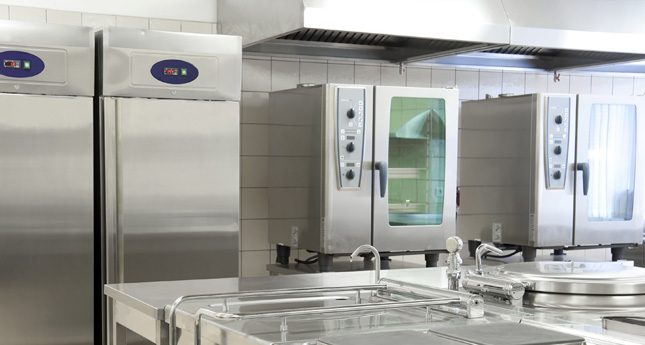

Ductwork and kitchen extract cleaning are votal to ensure a safe working environment for staff in commercial properties, according to the Building Engineering Services Association (BESA).
The Association, which developed the industry's primary standard for ventilation hygiene (TR19) almost 20 years ago, has now launched a suite of training courses to support the standard. This will be backed up by an accreditation scheme, which is due for launch in early 2017.
All employers are subject to health and safety at work legislation, which requires them to maintain conditions in occupied spaces that protect the well-being of their staff. Asthma and other respiratory conditions are on the rise in the UK and bacterial spores in ductwork have been linked to outbreaks of MRSA and other serious infections in hospitals and clinics. Building owners also face rising costs and more stringent conditions imposed on them by insurers concerned about fires being spread through poorly maintained ventilation systems.
Research suggests that around a quarter of the 24,000 accidental fires in UK non-domestic buildings each year are caused by cooking appliances. Fires in commercial kitchens can be made far worse by the rapid spread of the fire through poorly maintained grease extract systems and ductwork. If grease deposits in uncleaned ductwork are ignited they will spread the fire rapidly to other parts of the building.
Many insurance companies now make it a condition of cover that building managers have a planned maintenance strategy in place and, before paying out following a fire, they will insist on seeing evidence that ductwork cleaning had been carried out.
Since it was first developed in 1998, the TR19 standard has been widely accepted by the sector and British insurers as the standard to which ventilation systems should be cleaned. The guiding principle of TR19 is that a defined, measurable level of cleanliness should be achieved to improve safety and comfort in buildings.
TR19 also helps building owners satisfy their obligations under the Regulatory Reform (fire safety) Order 2005 and stay on the right side of fire officers who have the power to close down their building, impose fines of up to £10,000 and/or a two-year prison sentence for the designated responsible person.
The training scheme developed by BESA supports TR19 and promotes the high level of technical competence needed to ensure ventilation cleaning meets legal requirements.
The training is also designed to give clients the peace of mind that comes from employing a verifiably competent specialist ventilation hygiene contractor.
"Ventilation hygiene is an area of real strategic importance for BESA and the industry at large," said the Association's technical director Tim Rook. "We are extremely fortunate to be able to draw on the expertise of the dedicated volunteers in our enthusiastic Ventilation Hygiene group, who were responsible for the creation of TR19 in the first place.
"Their market is already enjoying healthy growth as a result of increased awareness among building owners of the crucial health and safety role played by hygiene specialists. However, we also have to guard against is the inevitable 'cowboy' element, who seek to undercut bona fide firms and fail to invest in the training and equipment needed to provide a professional and, therefore, safe service.
"The training courses and subsequent accreditation provided by BESA will allow properly professional ventilation hygiene firms to prove their competence and impress on clients the importance of having this work done to the highest standards," added Mr Rook.
If you'd like to keep up-to-date with the latest developments in the heating and plumbing industry, why not subscribe to our weekly newsletters? Just click the button below and you can ensure all the latest industry news and new product information lands in your inbox every week.